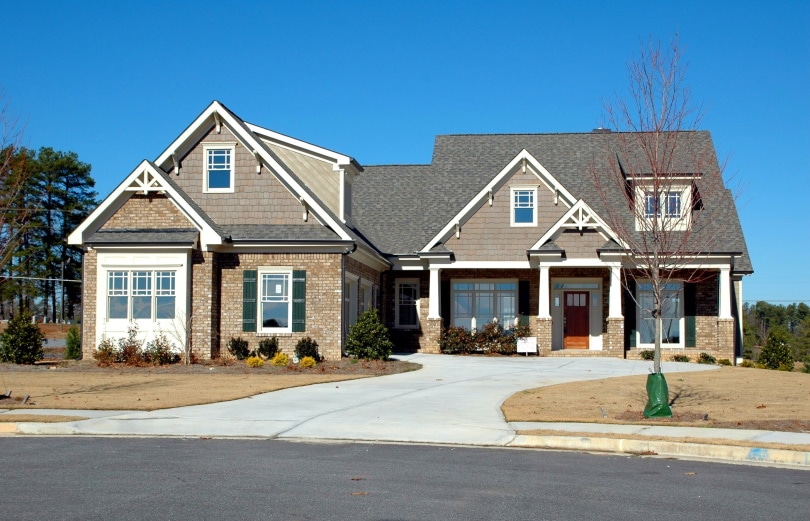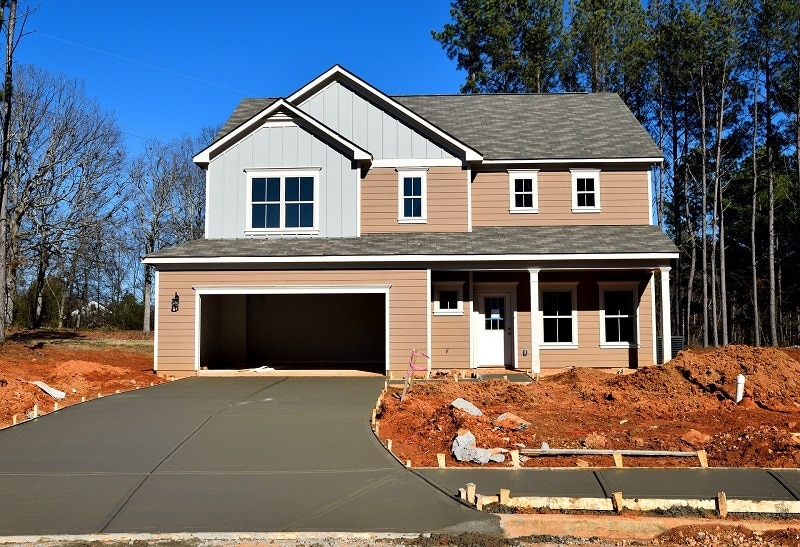Can I Park an RV in My Driveway? Restrictions, Regulations & FAQs
-
Pete Ortiz
- Last updated:

Many people dream of owning an RV that they can use for traveling, exploring, or living. Even though this sounds idyllic, there are some minor downsides to owning an RV, such as a lack of parking space and storage. Storing an RV properly and safely is a crucial part of owning a recreational vehicle. That includes maintaining it adequately, ensuring it is always in a drivable condition, and parking an RV when not using it.
While there are many available places designed explicitly for parking RVs, campers, or trailers, most people would prefer parking on their property. This way, you can ensure you keep your RV safe and secure while also saving money otherwise spent on monthly storage. Keep reading to find out the regulations and restrictions that must be strictly followed when parking an RV on your property or driveway.
 What Defines an RV?
What Defines an RV?
Many young people choose the option of living in an RV or traveling camper, which is their way of connecting adventure, traveling, and living. RV is short for “recreational vehicle”, which is a motor vehicle similar to a trailer and a camper with space specifically designed for living and accommodation. RVs are an innovative and entertaining way to connect the passion of traveling with everyday living. If you have a remote job, this lifestyle may be ideal for you.
RVs may be a significant investment for some, but it is such an adored hobby simply for the luxury of traveling while staying at home. Most RVs are equipped with all the necessary gadgets for a comfortable everyday life, such as a mini toilet, bath, kitchen, and bedroom, and some RVs even have a heating system built-in.

Why Park an RV on the Driveway?
Parking an RV right outside your house, in the driveway, can be a convenient thing to do for many people. If you are frequently using your RV or your camper, you might want to keep it as close as possible for easy access. Not only is it convenient to keep it in your driveway, but it is also much safer. You will be able to monitor your RV closely and make sure it is secure. RVs are a considerable investment for most people, and for some people, an RV is their life’s work, so keeping it as safe as possible is crucial.
When you park an RV on your driveway, you save a lot of money on the cost of storage facilities. Paying an outdoor or indoor storage fee for an RV can be a huge monthly expense, so saving some cash by parking it in a driveway or backyard can significantly cut your costs.
Things to Consider
Before you go ahead and park your RV in the driveway, there are many important factors to consider. Your RV may not be able to fit in your driveway, so it is essential to consider these factors before trying to park it in the driveway or backyard.

Width
The width of your RV is an essential feature to consider. The RV needs to be narrow enough to fit in your driveway effortlessly. You don’t want your driveway preoccupied because your kids may not be able to play in front of the house anymore, or there won’t be any room for another vehicle.
Length
Suppose your RV is longer than your driveway or even the same length as the driveway. In that case, it will be inconvenient, to say the least, especially if the back of the RV crosses over the driveway onto the sidewalk, which is both inappropriate and illegal. The RV length will be a deciding factor in whether you park it there at all.
Height
The height of the RV is not a large consideration. The only important thing to consider is whether it can fit in your driveway without reaching trees, phone lines, or power lines.
Driveway Slope
Before parking in your driveway, you will need to consider the driveway’s slope. Your driveway may be too steep, which can cause the back end of your RV to drag and scrape against the pavement. If your driveway has a slope, ask someone to assist you when parking to make sure you go as slow as possible and don’t damage your RV.

Neighbors
A massive plus for this little project of yours will be having understanding and tolerant neighbors. To ensure your neighbors are okay with you parking an RV in the driveway, let them know about your plan before doing it. Ask them if there is anything you can do to ensure they don’t have a problem with it and let them know how long the RV will stay in the driveway.
Garden Aesthetics
Ensure the RV doesn’t block your view or your neighbor’s view. You can try backing up your RV instead of pulling into the driveway straight. This way, you might get more space and still leave an open view of the street for you and your neighbors.
Is it Legal to Park an RV in the Driveway?
To answer this question simply—yes. Parking your RV in the driveway is legal if your RV meets the size standards and if you follow all the regulations and rules provided by the jurisdiction of your state or city. Make sure to research the restrictions for your area specifically, although we will list some general rules and regulations that apply in all states of the US.

- Parking an RV on residential property is legal if the RV does not interfere with the sidewalk or the landscape.
- It is permitted to park the RV only on a legally paved surface, such as gravel, asphalt, or concrete.
- The RV owner must be the property owner as well or use the property as their primary residence.
- The position of the parked RV must be perpendicular to the main street.
- The RV cannot have connections to any sources of water, electricity, gas, sewer, telephone, or fuel.
- An RV must be at least 3 feet away from any structures or interior property lines.
- The RV must be in a drivable condition, with an active license and registration.
- If the RV is visible to the public eye, it must stay adequately maintained and in good repair or entirely covered.
FAQs On Parking an RV in Your Driveway
Will an RV crack my driveway?
If you park your RV in your paved driveway for a long time, the concrete will likely start breaking from the weight. Any driveway built with cobblestone, asphalt, or concrete will eventually begin to crack, cave in, or become uneven. Once the cracks start appearing, the damage will quickly spread further through the driveway.
- Related Read: How Thick Should a Concrete Driveway Be?

How do I back out of my sloped driveway without scraping my RV?
Driveway slopes are pretty standard, and it is not a problem for regular vehicles. Although, parking can be quite challenging for RVs or trailers and campers. You may need to add ramps or boards to manage to park. You should be able to park safely by simply driving slowly and carefully, with someone assisting you.
How long can an RV stay in my driveway?
It is essential to research this topic based on your particular location. Some cities will allow you to park an RV in your driveway from 24 hours to 72 hours. Even though you may not be able to park for longer than 72 hours, most cities allow for parking an RV somewhere secure on your property. You may build a storage shed where you can safely and legally store your RV for a more extended period.
 Final Thoughts
Final Thoughts
Parking an RV in the driveway can be a valuable and convenient additional space. However, you will need to inform yourself beforehand about the rules of parking RVs in residential lots. While you are allowed to park your RV on your property and the driveway, there are a few restrictions you will need to follow for everything to be legal.
Featured Image Credit: InsaPictures, Pixabay
Contents

 What Defines an RV?
What Defines an RV?